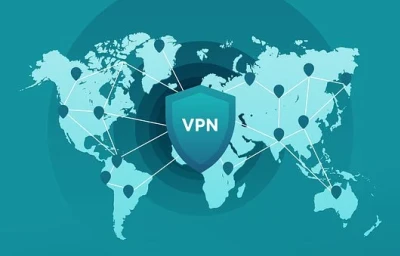
Linux is famous for its strong security. Yet, adding a Virtual Private Network (VPN) boosts privacy even more. A VPN encrypts connections and protects data. This is essential for accessing restricted content, avoiding censorship, or keeping activities private and secure.
With privacy concerns growing, choosing the right VPN for your Linux system is key to staying safe online. Let's review the best free VPNs for Linux by comparing their compatibility, features, and limits.
Importance of Using a VPN on Linux
Privacy and Security Benefits
- Encryption: A VPN creates a secure tunnel between your device and its server, keeping data safe from hackers, ISPs, and prying eyes. It’s crucial for Linux users who work with servers or sensitive data.
- Protection from Threats: Linux faces fewer malware attacks than Windows or macOS but isn't safe. Threats like phishing and data theft are real. Using public Wi-Fi makes you vulnerable. A VPN encrypts your data and hides your online identity, reducing these risks.
- Stopping Data Collection: Data is valuable. Websites often track users for ads. Linux users might use ad blockers or privacy browsers. A VPN adds extra protection by hiding your IP and location, preventing targeted ads and tracking.
- Secure Work: For Linux users in development or tech, secure file sharing and remote work are key. A VPN protects files and data, crucial for corporate or personal information.
Geographical Restrictions
- Accessing Region-Locked Content: Streaming services like Netflix and Hulu limit access to content based on location. For example, a show might be available in the U.S. but blocked in Europe or Asia. Here, a VPN acts as a digital key. It lets you appear in another country, unlocking more content. Meanwhile, tech-savvy Linux users often adopt VPNs. They navigate the online world while keeping their connections secure.
- Bypassing Censorship: In some areas, governments heavily censor the internet. They might block access to YouTube, WhatsApp, or Wikipedia. Countries like China, Russia, and Iran impose strict internet rules. A VPN allows users to bypass this censorship. It routes traffic through servers in less restrictive countries. This ensures access to important information and supports free expression.
- Accessing Work and Educational Resources Abroad: Many professionals and students need resources tied to specific regions. This includes corporate servers, academic journals, or online courses. A VPN can mask your location, granting access to these vital resources.
Criteria for Selecting a VPN for Linux
Choosing a VPN for Linux needs careful thought. While there are a ton of options for Windows, Android, and iOS, which you can easily find on websites like vpnHunt.com, there are not a ton of options available for Linux. Furthermore, not all VPNs suit Linux users. They often face unique issues, like limited app support or compatibility problems. Here, we outline key factors to help you decide.
Compatibility
First, ensure the VPN works with Linux. Many VPNs focus on Windows and macOS, but few fully support Linux.
- Linux Clients: The best choice is a VPN with a Linux app. It simplifies setup and offers better integration. However, not all free VPNs have this. Others may require manual setup, which can be tough for beginners.
- Support for Distros: A good VPN should work with many Linux distros, like Ubuntu and Fedora. Some providers offer guides for setting up VPNs on different distros, which helps less experienced users. Advanced users might prefer tweaking configurations.
- Command-Line vs. GUI: Many Linux users prefer terminal commands. Some VPNs offer command-line clients to this group, but others might find a GUI easier.
Security and Privacy
Security and privacy are crucial, especially for Linux users. Not all VPNs offer the same protection.
- Encryption Protocols: Look for VPNs using strong protocols like OpenVPN or WireGuard. These ensure data safety.
- Logging Policies: Check the provider's logging policy. Avoid those that track or sell data. A no-logs policy is essential for privacy.
- Kill Switch and DNS Protection: A kill switch stops internet access if the VPN fails. DNS protection keeps browsing private. Both are vital for security-focused users.
- Advanced Features: Multi-hop and obfuscation features are extra benefits. They offer more security and privacy.
Performance
A VPN should not slow down your internet too much.
- Speed and Reliability: Free VPNs may have speed limits. Proton VPN is an exception, offering good speeds for free.
- Server Availability: More servers mean better performance. You can connect to closer servers, which speeds up your connection.
- Bandwidth and Data Limits: Be wary of data limits in free VPNs. Proton VPN offers unlimited data for free. TunnelBear, on the other hand, is much more limited.
Usability
Usability is key, especially for beginners.
- Installation and Setup: Some VPNs are easy to install. Others might need a manual setup. Ensure the provider offers support.
- User Interface: A GUI makes things easier for beginners. Some VPNs offer both command-line and GUI options.
- Customer Support: Free VPNs often have limited support. However, some provide basic support. Good support is crucial for troubleshooting.
- Customization Options: Advanced users appreciate customizable settings. Look for VPNs that allow such tweaks.
Top Free VPN Options
Proton VPN
Compatibility: Offers a Linux client and setup guides, ideal for Linux users.
Features:
- No data limits.
- Strong security with AES-256 and ChaCha20 encryption and a no-logs policy.
Limitations:
- Free users can only access servers in a few countries.
- Speeds may drop during congestion.
Follow this guide to learn how to install Proton VPN on linux and set it up.
TunnelBear
Compatibility: No Linux app, but manual setup is available.
Features:
- Easy to use on Windows and macOS.
- Good speeds for browsing and streaming.
Limitations:
- 2000 MB monthly cap on the free plan.
- Setup can be tricky for beginners.
For those who aren’t familiar with the setup can follow this guide and start using TunnelBear on linux.
Hotspot Shield
Compatibility: Works with Fedora OS, Debian, Ubuntu, and CentOS operating systems. It is not available for free but comes with a 45-day money-back guarantee.
Features:
- Strong encryption for secure browsing.
- Good speeds on the free plan.
Limitations:
- Limited customization for Linux users.
You can find all the support and installation guides on the official Hotspot Shield website.
Comparison and Recommendations
|
VPN |
Compatibility |
Features |
Limitations |
Best For |
|
Proton VPN |
Native Linux client |
No data limits, strong security |
Limited free servers |
Unlimited data, advanced users |
|
TunnelBear |
Manual configuration only |
User-friendly, decent speed |
2000 MB monthly data cap |
Beginners, light browsing |
|
Hotspot Shield |
OpenVPN configuration only |
Strong encryption, good speed |
Limited Customization |
Moderate users, secure streaming |
Conclusion
Enhance your online experience with a VPN on Linux—your ally in privacy and security. These virtual shields grant you access to content from around the globe. Free services like Proton VPN, TunnelBear, and Hotspot Shield lay the groundwork but come with limitations.
Though free VPNs are a great starting point, they often tether you with data limits and lackluster features. For those seeking faster speeds, robust security, and dedicated support, a paid plan is worth considering. The best VPN adapts to your needs while safeguarding your privacy, ensuring your online world remains secure and accessible.
















